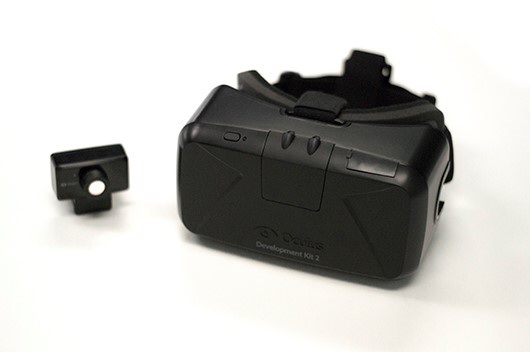
I was sitting in a briefing this afternoon with a tech startup, tapping notes on my iPad, when an e-mail notification popped up at the top of my screen: “Oculus Joins Facebook.” I had to restrain myself from doing a double-take and wondering aloud: “Does that mean what I think it means?”
Sure does. Facebook is acquiring Oculus VR, the maker of the Oculus Rift virtual-reality headset, for $2 billion in stock and cash. It’s a huge deal — potentially a bigger one than last month’s Facebook shocker, its $19 billion acquisition of WhatsApp, in every aspect except the money involved.
That’s because Oculus is building something that feels potentially as transformative as the graphical user interface, the mouse, the touchscreen, speech recognition or any of the other elements that have changed the way we interact with technology in the past. What it gives you — a 3D world you can explore by looking up, down and all around you — will be spectacular for games. But it’s not hard to imagine future versions of the technology being applied to other sorts of activities we perform using computing devices. Such as — just to pick an example at random — social networking.
I do confess feeling a twinge of sadness at the news: Technology breakthroughs are most exciting when they’re brought to us by scrappy startups, rather than large companies that happen to have enough money to acquire smaller ones. But I can’t begrudge Facebook’s Mark Zuckerberg his new toy. When I tried Oculus Rift for the first time in its pre-release form last September, I was blown away as thoroughly as I’ve been blown away by any tech demo I’ve seen during my 23 years of writing about this stuff. If I’d had a spare $2 billion, I would have tried to buy the company, too. And if you haven’t tried Rift yet for yourself, the acquisition may make less sense to you than if you’ve strapped it on even briefly.
Zuckerberg’s timeline post about the deal on his own Facebook page explains why Oculus’s technology is interesting to Facebook in what seems like a pretty straightforward fashion:
Immersive gaming will be the first, and Oculus already has big plans here that won’t be changing and we hope to accelerate. The Rift is highly anticipated by the gaming community, and there’s a lot of interest from developers in building for this platform. We’re going to focus on helping Oculus build out their product and develop partnerships to support more games. Oculus will continue operating independently within Facebook to achieve this.
But this is just the start. After games, we’re going to make Oculus a platform for many other experiences. Imagine enjoying a court side seat at a game, studying in a classroom of students and teachers all over the world or consulting with a doctor face-to-face — just by putting on goggles in your home.
This is really a new communication platform. By feeling truly present, you can share unbounded spaces and experiences with the people in your life. Imagine sharing not just moments with your friends online, but entire experiences and adventures.
Before the WhatsApp and Oculus acquisitions, Facebook still felt like a vastly richer, more popular version of the thing Zuck built in his dorm room in 2004: a social network for helping you keep track of your friends and their activities. Now it’s clear its aspirations aren’t anywhere near so well defined.
WhatsApp is already a phenomenon unto itself, the most important of several services that threaten to render text messaging obsolete in its old-fashioned, supplied-by-a-wireless-carrier form. And if Oculus takes off, Facebook may take a lead role in defining the future of human-machine interaction.
Even Zuckerberg doesn’t have an infinite war chest, and Facebok isn’t the only company willing to pay huge money for potentially epoch-shifting startups. (Exhibit A: Google’s $3 billion buyout of smart thermostat maker Nest.) But the enormity of the company’s recent purchases — in ambition, not just cost — has rewired my brain. From now on, I’m not going to be stunned by Facebook acquisitions, no matter how big. What’ll surprise me is if there are no more visionary, pricey deals where these two came from.
More Must-Reads from TIME
- Cybersecurity Experts Are Sounding the Alarm on DOGE
- Meet the 2025 Women of the Year
- The Harsh Truth About Disability Inclusion
- Why Do More Young Adults Have Cancer?
- Colman Domingo Leads With Radical Love
- How to Get Better at Doing Things Alone
- Michelle Zauner Stares Down the Darkness
Contact us at letters@time.com